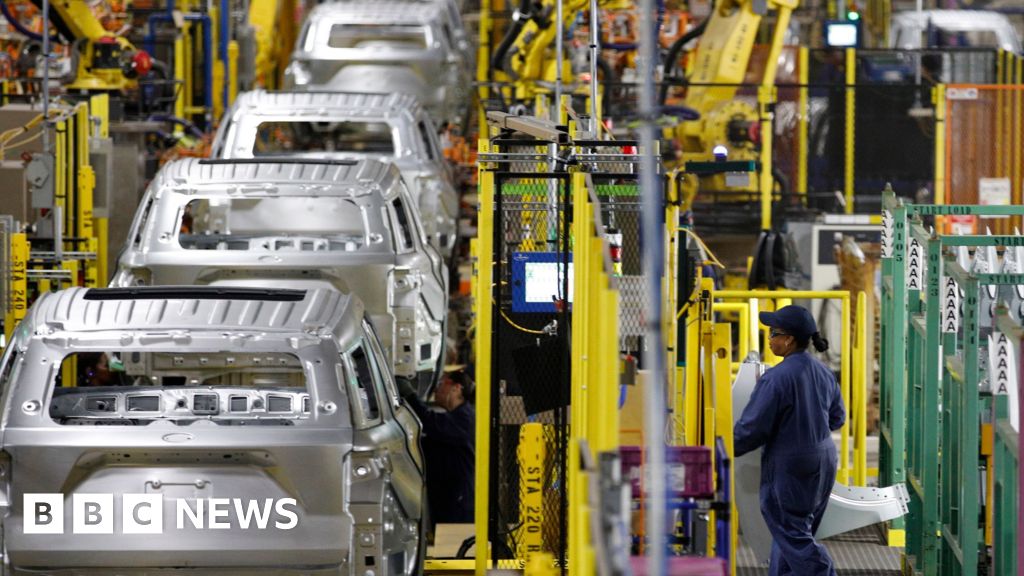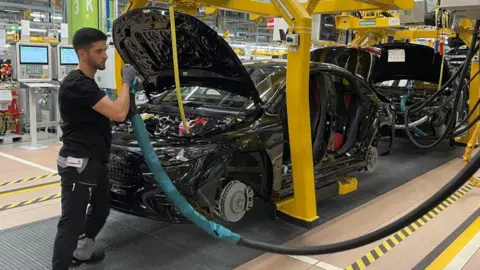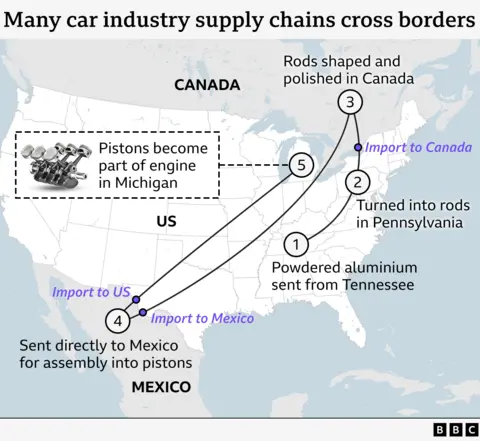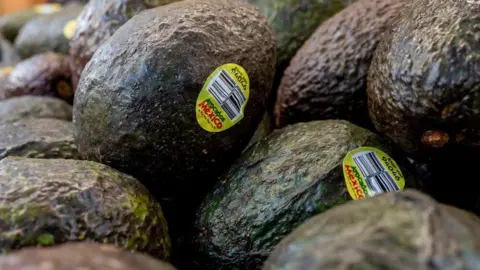Five things that could get more expensive for Americans under Trump tariffs

Business reporters, BBC News
 Reuters
ReutersIn April, US President Donald Trump announced he was introducing sweeping new tariffs, extra taxes that importing firms have to pay if they bring in goods from abroad.
Since then some of the US’s major trading partners including the UK, Japan and now the European Union have negotiated down the headline tariff rates. The EU’s agreement cuts in half the 30% tariff Trump had threatened.
But other countries are still facing higher rates, including Canada, which will see tariffs rise to 35% on 1 August if no deal is reached.
Trump says the extra tariffs will generate billions in revenue and encourage firms to manufacture in the US to avoid the taxes.
But there are already signs that the levies may be pushing up prices for American consumers and economists argue that there is still some way to go before American shoppers feel the full force of the rises.
So what products are likely to become more expensive?
Cars
Trump has been particularly keen to see tariffs on imported vehicles in the hope that raising the price of foreign-made cars will give a boost to American firms.
In March, he introduced a 25% levy on imported passenger vehicles in an effort to “protect America’s automobile industry”. He has since reduced this for some major car-exporters. Importers will pay 10% on UK cars; 15% on cars from Japan.
EU-built cars are now subject to a tariff of just 15%. More than three-quarters of a million cars were exported from the EU to the US, last year, 22% of all the cars made in Europe.
But Trump’s hopes that the tariffs will persuade consumers to choose American-made cars may backfire. Many cars made by US brands are actually assembled outside the country, including in factories in Canada and Mexico, meaning they are subject to the 25% levy.
So far, the tariffs have not led to a sharp rise in car prices. Erin Keating, an executive analyst Cox Automotive, suggests that is because firms are so far “absorbing more of the burden [from tariffs] and not passing the added costs to consumers”.

Beer, wine and spirits
 Getty Images
Getty ImagesThe US is one of Europe’s biggest alcohol export markets, with European companies, including Pernod Ricard and LVMH, selling €9bn (£7.8bn) of alcohol to the US each year. The country makes up about a third of Irish whiskey exports and almost 18% of champagne exports.
However, European Commission President Ursula von der Leyen has not said whether alcohol will be included in its tariff deal with the US or exempted along with other, unspecified, agricultural and food products.
Meanwhile, under tariffs announced in April, Mexican beers like Modelo and Corona could become more expensive because of levies on aluminium, which affected beers poured from cans. Most beer in the US – 64.1% – is poured out of cans, according to the Beer Institute.
Energy and fuel
The European deal will increase the amount of energy Europe buys from the US, which von der Leyen said will “replace Russian gas and oil” with cheaper liquefied natural gas (LNG), oil and nuclear fuels from America.
But the tariffs don’t necessarily mean good news for US consumers.
Canada is America’s largest foreign supplier of crude oil. According to official trade figures, 61% of oil imported into the US between January and November 2024 came from Canada.
Although Trump is threatening a 35% tariff on most Canadian exports, energy faces a lower rate of 10%.
The US doesn’t have a shortage of oil, but its refineries are designed to process so-called “heavier” – or thicker – crude oil, which mostly comes from Canada, with some from Mexico.
“Many refineries need heavier crude oil to maximize flexibility of gasoline, diesel and jet fuel production,” according to the American Fuel and Petrochemical Manufacturers.
That means if Canada decided to reduce crude oil exports in retaliation against US tariffs, it could push up fuel prices.
Houses
The US buys about 69% of its lumber, 25% of its imported iron and steel, and 18% of its copper imports from Canada, a report by the Canadian Chamber of Commerce has suggested.
Trump has said the US has “more lumber than we ever use”. However, the National Association of Home Builders (NAHB) has “serious concerns” that the tariffs on lumber could increase the cost of building homes – which are mostly made out of wood in the US – and also put off developers building new homes.
“Consumers end up paying for the tariffs in the form of higher home prices,” the NAHB said.
Avocados
 Getty Images
Getty ImagesAvocados thrive in the Mexican climate.
Nearly 90% of the avocados consumed in the US come from Mexico.
The US Agriculture Department has warned that tariffs on Mexican fruit and vegetables could increase the cost of avocados.
Related dishes like guacamole could also become more expensive.
Additional reporting by Lucy Acheson
[title_words_as_hashtags





